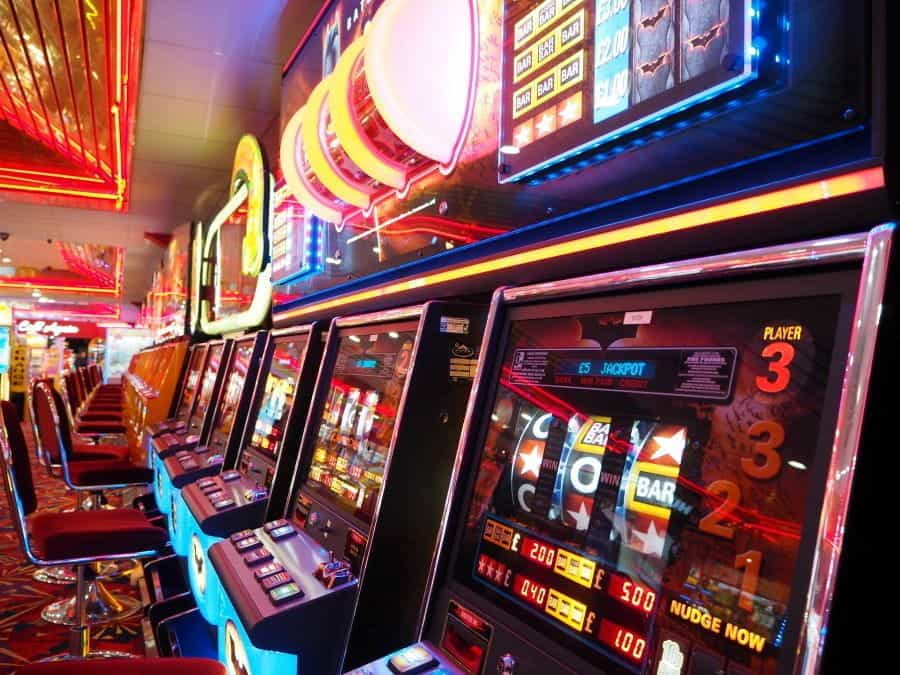Operators to Claim Rebates on FOBTs
Gambling firms in the UK are expected to claim back £1 billion in compensation over historic taxes paid on Fixed-Odds Betting Terminals. Bookmakers and casinos have won a legal battle against HMRC, which ruled that the industry had unfairly been charged VAT on revenue earned from FOBTs. William Hill and GVC are amongst the companies set to benefit from the ruling, and could together claim up to £350 million.

Fixed-Odds Betting Terminals used to be the biggest source of revenue for high street bookies, before stakes were capped. ?Lee Thomas/Unsplash
Rank and Betfred Win the Case
Gambling operators Rank and Betfred alleged that VAT payments charged from 2005 to 2013 were unfair. Until 2013, operators were charged 20% VAT on top of 15% duty on Fixed-Odds Betting Terminals. In 2013, those VAT payments were swapped for 20% machine games duty, which was soon raised to 25%.
Together, Rank and Betfred brought a case against HMRC, which has only recently been concluded. A final ruling has been a long time running, as when a first-tier tribunal sided with operators in 2018, HMRC issued an appeal.
However, in April the ruling from the upper tax tribunal agreed with operators, ruling that they had been overcharged VAT for a period of eight years. HMRC has confirmed that it will not be appealing this ruling so now gambling companies are open to submit claims to have their overpayments compensated. It is thought that Betfred could be owed in the region of £100 million, while Rank has requested just over £25 million.
William Hill will also submit a claim for a rebate that could be worth somewhere between £125 million and £150 million. Speaking to investors, the operator said “As a result of this announcement, we will now engage with HMRC to agree the support for, quantum and timing of the refund”. Following the announcement, William Hill’s shares rose by 6%.
“Whilst William Hill currently expects the net cash recovery to be material, its precise quantum remains uncertain. Nevertheless, the board has considered a number of scenarios which suggest a potential net cash recovery of between £125 million and £150 million.”
GVC could also be granted a rebate of up to £200 million. This news resulted in the operator’s shares climbing by almost 2%. In a statement, GVC explained that it would pursue a rebate following the news that the judge had ruled in favor of Rank and Betfred.
“The Group understands it will be eligible for a rebate of historic VAT incorrectly paid on gaming machine revenues from its own Ladbrokes betting shops in the period 1 October 2002 to 31 January 2013.”
Other gambling companies are likely to follow suit, and claims could add up to hundreds of millions. The timing could hardly be worse for the government, as the coronavirus pandemic has set a match to its usual financial practices. There is also growing pressure from campaigners for tighter gambling regulations to be brought in.
However, for gambling firms the extra cashback from VAT rebates could cushion the impact that the outbreak has had on business. Bookmakers in particular have suffered from the interruption to sporting schedules, although many operators have been able to redirect their regular customers to preexisting online casino products.
A Final Win From FOBTs
These rebates will be the final big financial reward from the once lucrative FOBTs. Once dubbed the ‘crack cocaine of gambling’, these machines used to turn high profits for operators. However, a successful campaign from the Gambling Related Harm APPG, led by Labour MP Carolyn Harris, resulted in a stake limit being introduced. The machines which once allowed stakes of up to £100 can now only offer £2 stakes.
The stake cape on FOBTs had a big impact on business for William Hill, which claimed that it had lost £63.5 million as a result. Its high-street shops saw sales dip by 12%. Shortly afterwards, the operator announced that it would be forced to shut 700 of its shops, cutting around 4,000 jobs.
In April’s ruling, Mr Justice Mann and Judge Thomas Scott agreed that FOBTs are similar to gambling devices, such as roulette wheels, which are exempt from sales tax. As a result, HMRC should not have charged operators VAT on revenue generated from FOBTs.
“Such differences as there were between the various comparator games in terms of their relevant characteristics did not have a significant influence on the decision of the average customer to use one machine or another.”
Carolyn Harris has led an outcry against the decision, urging the government to overturn the ruling. “I sincerely hope that the Treasury challenges this decision, especially at this time when it needs every single penny it can get its hands on.”. Harris has also pressed the regulator to introduce a £2 cap for online slots.
While campaigners have highlighted that gambling addiction is a particularly concerning issue during the coronavirus lockdown, Rank and Betfred have reiterated that this case stems from long before the pandemic hit.
“This is an historical tax case where the upper tribunal has agreed with the original court decision in July 2018 that licensed betting offices were wrongly charged VAT on fixed odds betting terminals between 2005 and 2013.”
 Online Casinos UK
Online Casinos UK



